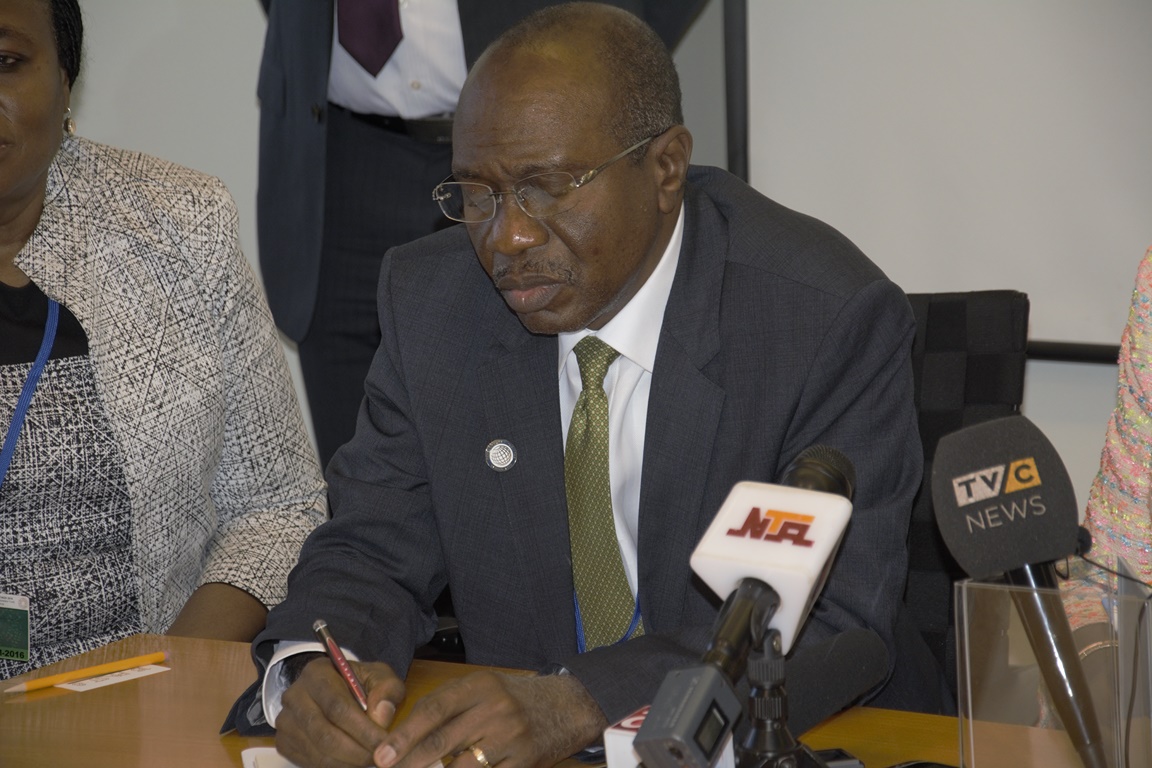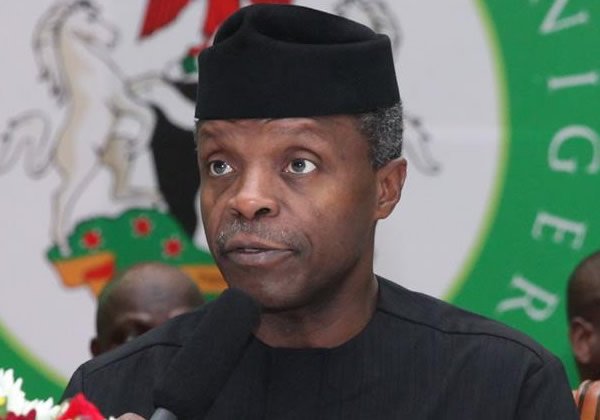BY SOPURUCHUKWU UWADIEGWU
The media has been awash lately with news that the Central Bank of Nigeria (CBN) has banned nine deposit money banks (DMBs) from the foreign exchange market, for allegedly hiding over $2 billion belonging to Nigerian National Petroleum Corporation (NNPC), being dividend from the Nigeria Liquefied Natural Gas Limited (NLNG), from the Treasury Single Account (TSA).
From what the public is being fed, it is apparent that President Muhammadu Buhari was briefed on the alleged breach by the banks, and that they have all been mandated to move the monies to the TSA in keeping with the policy directive of government before they can be allowed to participate again in the forex window.
Interestingly, before the TSA came into effect, the NLNG was paying dividends from the investment of the government in the NLNG through the NNPC, through its accounts domiciled with a couple of Nigerian banks. These dividends had accumulated to about $5bn over time. It is alleged that the NNPC was investing this dividend payment in a dedicated account as fixed deposits with some commercial banks.
Advertisement
However given the rush by the present government to implement the TSA, an initiative conceived under the Goodluck Jonathan administration, the banks were caught off-guard and appeared unable to remit the monies back to government coffers at once. Consequently, it was decided that the remittance of these NNPC funds (dividends) be staggered so to mitigate the negative impact it might have on the economy.
The TSA policy came into force in August 2015 with government saying it would help control leakages in the system. However, following deliberations with the chief executives of the banks, the CBN clarified that the dividends due to the NNPC from the NLNG were exempted from the TSA policy. The Accountant General of the Federation, M K Dikwa issued a circular addressed to the Director, Banking and Payments System Department of the CBN with reference number FD/LP2015/C/ADC/20/1/DF, dated September 14, 2015 to clarify this.
This is why several stakeholders are surprised at this summersault, particularly with reports claiming that the President gave his blessing for the ‘erring’ banks to be sanctioned. Now with the economy needing as much support as it can get, the sole source of breathing live into the economy is at danger of being heated up and the public sent into panic mode since this news broke.
Advertisement
Lenders’ reactions
Expectedly, several of the deposit money banks involved are reacting to the development. While some posit that they are not the only ones involved, the CBN tamely reacts that the others would be further investigated, a stance that does little to assuage the fears of the public. Many are of the position that the CBN ought to have done its homework well before castigating few out of presumably more offenders, particularly given the sensitive nature of the banking sector and the impact it will always have on the general economy.
For instance, Fidelity Bank has vehemently denied withholding government fund that would have been remitted to the TSA. A source at the bank clarified that the said N2.1 billion was part of NLNG dividends from the investment of the government in the company to the NNPC, which going by written communication with policy makers is not meant for the TSA.
It will be recalled that when the government raised the issue that the dividends should have been paid into the Federation Account, the CBN Governor invited the CEOs of all the banks that had the funds for a meeting in Abuja to reconcile the amount in each bank with the records of CBN/NNPC, and to agree on a repayment timetable of the funds with the banks. Also, as at the time the TSA implementation commenced in September 2015 some of the banks had paid back over 50 per cent of the funds based on the repayment timetable agreed with the CBN.
Advertisement
“When the TSA commenced, the banks reported these funds as part of government deposits they had but it was not remitted like other TSA funds because of the remittance timetable that had been agreed with the CBN,” the source disclosed.
It is evident that the CBN and NNPC had a clear picture of the status of these funds with the banks. So for the CBN to now hurriedly suspend nine banks from the foreign exchange market alleging breach claiming to have the consent of the president, it is either there is a policy summersault or someone is out to deceive the Nigerian public by heating up the economy.
UBA on its parts has issued a statement claiming that it has fully remitted what is due on the NNPC/NLNG account to the TSA. “We wish to state very categorically that UBA has completely remitted all NNPC/NLNG dollar deposits,” the statement read in part.
Similarly, Diamond Bank claims it has been very transparent in its management of remittances of the NNPC/NLNG account to the TSA, in keeping with agreed terms.
Advertisement
Almost all the banks wield evidence that the Accountant General had through a circular issued in September 2015 exempted 13 government agencies from the TSA. Notable among the agencies so exempted are NNPC, Power Holding Company of Nigeria, Bank of Industry, Nigerian Railway Corporation, Federal Mortgage Bank of Nigeria, Bank of Agriculture, Niger Delta Power Holding Company/National Integrated Power Project, Ajaokuta Steel Company Limited, Galaxy Backbone Limited, etc.
In addition, the affected banks also claim that in keeping with the TSA Implementation, which commenced in September 2015, some of them had paid back over 50% of the funds based on the repayment timetable.
Advertisement
What will it benefit to throw the economy into panic with the TSA policy?
Nigerians welcomed the TSA policy with joy, believing the government’s position that it would help block leakages. The impact, in some case has been good, I must say.
Advertisement
For clarity sake, the TSA is simply a public accounting system under which all government revenue, receipts and income are collected into one single account, usually maintained by the country’s Central Bank and all payments done through this account as well. The purpose is primarily to ensure accountability of government revenue, enhance transparency and avoid misapplication of public funds.
The maintenance of a TSA is intended to help ensure proper cash management by eliminating idle funds usually left with different commercial banks and in a way enhance reconciliation of revenue collection and payment. However, in an economy such as ours that is heavily dependent on government, the speedy implementation of the TSA is certain to cause a lot of dislocations.
Advertisement
One will imagine that in managing these dislocations, consensus building, rather than military fiat, is required. This argument is premised on the fact that the economy is grossly under-performing and would require the injection of funds into critical sectors. This cannot happen with a weak financial system. The government therefore needs to rethink its harsh stance as expressed with this brash ban.
Uwadiegwu, a public affairs analyst, writes from Isolo, Lagos
Views expressed by contributors are strictly personal and not of TheCable.
Add a comment






